Elon Musk’s Plans to Conquer Europe Collide With Germany’s Culture Wars
GRÜNHEIDE, Germany—When Tesla opened its first full-scale European factory in this sleepy community outside of Berlin, Elon Musk was feted as a hero, the chancellor gave a speech and workers cheered the rollout of new Model Ys.
Most Read from The Wall Street Journal
Netflix Is Rethinking Employee Freedom, a Core Tenet of Its Vaunted Culture
Phony Billionaires on Facebook Are Scamming Americans Out of Their Life Savings
FTX’s Sam Bankman-Fried Should Serve 40 to 50 Years in Prison, Prosecutors Say
Apple to Pay $490 Million to Settle Lawsuit Over Tim Cook’s China Comments
We All Want Simpler Taxes. Here’s Why That’s So Complicated.
On Wednesday, almost two years to the day later, Musk was back, this time to cheer up workers after an act of sabotage by suspected eco-activists shut down the plant for more than a week.
Musk’s ambition to cement Tesla’s position as the EV leader in Europe has become entangled in local culture wars, making his shining factory a lightning rod for a range of critics—from local citizens to environmental activists, left-wing militants and far-right politicians.
Tesla’s growing image problem here has tracked Musk’s own transformation from an EV pioneer focused on saving the planet and colonizing Mars to a polarizing social-media persona known for controversial posts.
In recent weeks, nearly two-thirds of Grünheide’s residents had voted against Tesla’s application for an extension of the plant. The company has also been targeted by climate-change skeptics opposed to their country’s green-technology transition, while trade unionists and center-left politicians have mobilized against Musk’s no-union policy.
Tesla didn’t respond to requests for comment on the various incidents. In a post on his X social-media platform, Musk has called the eco-activists “dumber than a doorstop” for their criticism of electric vehicles.
As the plant’s managers and workers gathered in a tent on the factory grounds for a “team huddle” on Wednesday, Musk could be seen carrying his son. Hoisting the boy onto his shoulders amid calls of “Elon, Elon,” he shouted back: “They can’t stop us!” and “Ich liebe Dich!”—German for “I love you.”
As he left, reporters asked him whether he was still committed to expanding the plant and producing vehicles in Germany.
“Yes, absolutely,” he said. “Germany rocks!”
Manuela Hoyer, a 63-year-old pensioner and Grünheide resident, hopes he won’t expand the plant.
Hoyer is one of the central figures organizing opposition to GigaBerlin, as Tesla calls its plant. She and her allies scored a victory last month when 62% of residents voted in a nonbinding referendum to deny Tesla’s bid to knock down 250 acres of local woodlands to make room for more factory buildings, a train yard and a daycare center.
Sipping Greek coffee at a restaurant near the plant a few days before Musk’s visit, she said Tesla’s plan is unlikely to be the last land grab, noting that the plant is built in the middle of a large water and woodland conservation area.
“Our concern is about the water protection areas in the forest,” she said. GigaBerlin sits amid acres of pinewood forests and country roads winding past lakes whose shores are dotted with bungalows and boat docks.
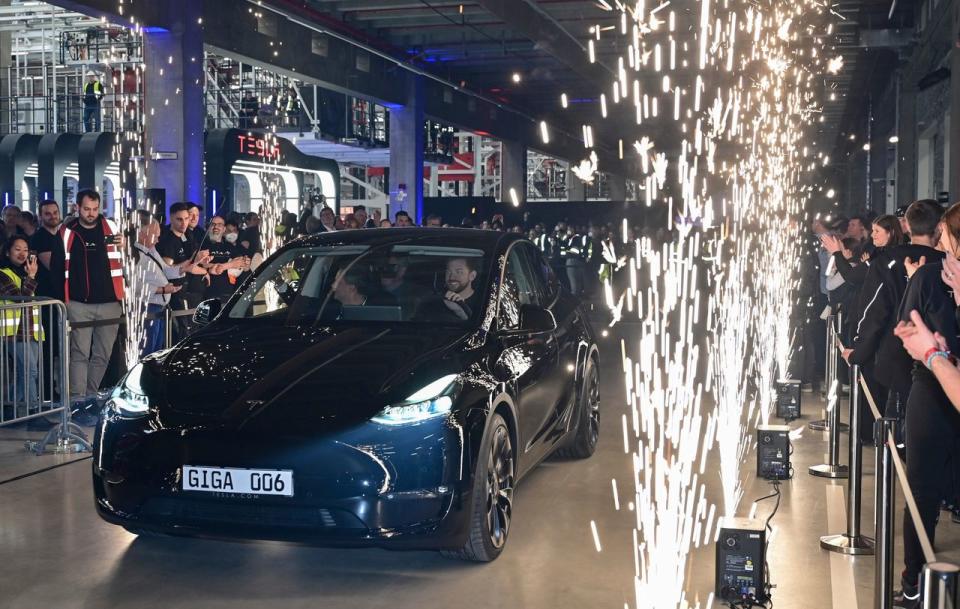
Pros and cons
For many here, Tesla’s arrival marked a rare economic opportunity. The city treasurer said in December that Tesla provided 6 million euros, equivalent to $6.6 million, from local taxes in 2022. State officials say the impact on local water resources has been less severe than expected.
For others, Tesla’s arrival has mainly translated into higher rents, higher prices, more heavy truck traffic and unfamiliar faces. Official statistics suggest most of the 12,000 jobs created by the plant have gone to outsiders, with unemployment in Landkreis Oder-Spree, the county where Grünheide is located, steady at around 6%.
Tesla’s critics, and some of its local supporters, say Musk’s behavior in public and on social media has contributed to the polarization. Last year, he was criticized after retweeting a post on X that claimed German-government-funded groups were rescuing asylum seekers in the Mediterranean. The post expressed hopes that German voters would back the anti-immigration Alternative for Germany party, or AfD, in protest.
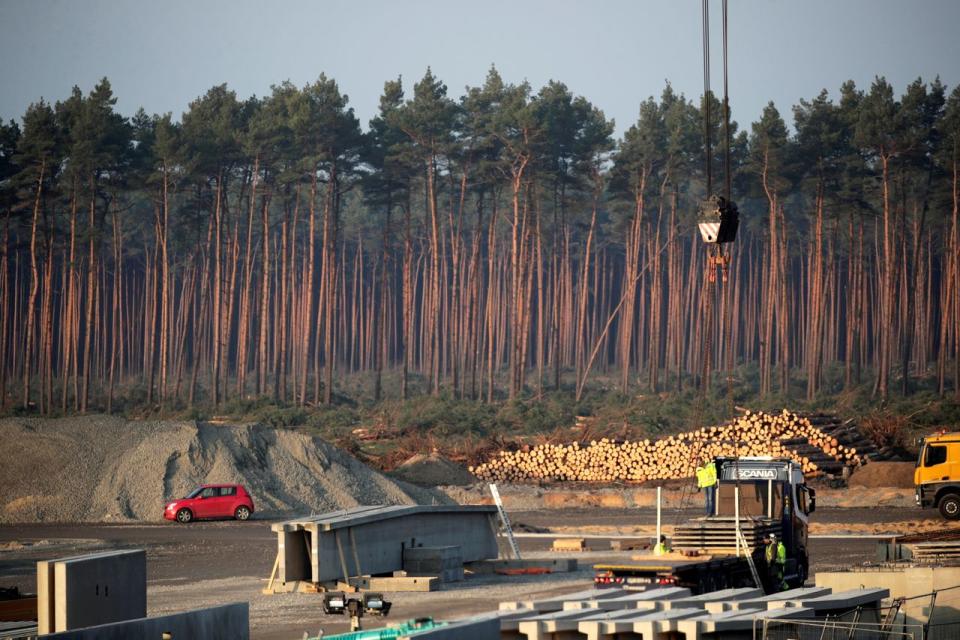
Musk’s antiunion positions have also raised eyebrows in a country where organized labor has a tradition of working hand-in-hand with management across industries.
IG Metall, the dominant manufacturing-sector union, has set up an office where Gigafactory buses drop off and pick up Tesla workers. Its representatives have been signing up employees ahead of a key vote inside the plant later this month to elect a new works council.
Shortly after the results of the Grünheide referendum were made public last month, a group of about 100 environmental activists, most of them from Berlin’s left-wing scene, erected a forest camp in the woods outside the plant. Their protest, they say, aims to force the city council to honor the outcome of the vote and stop Tesla from cutting down the forest.
“We will stay until they come and carry us out,” said Rene Sander, a 28-year-old social worker, as other activists behind him hung from industrial climbing gear while erecting wooden platforms in the upper reaches of the pinewood forest.
“The narrative of clean electric cars is a dirty lie,” said Sander, citing the environmental and social impact of mining for battery materials, including lithium and cobalt. “We need more and better public transportation, not luxury SUVs.”
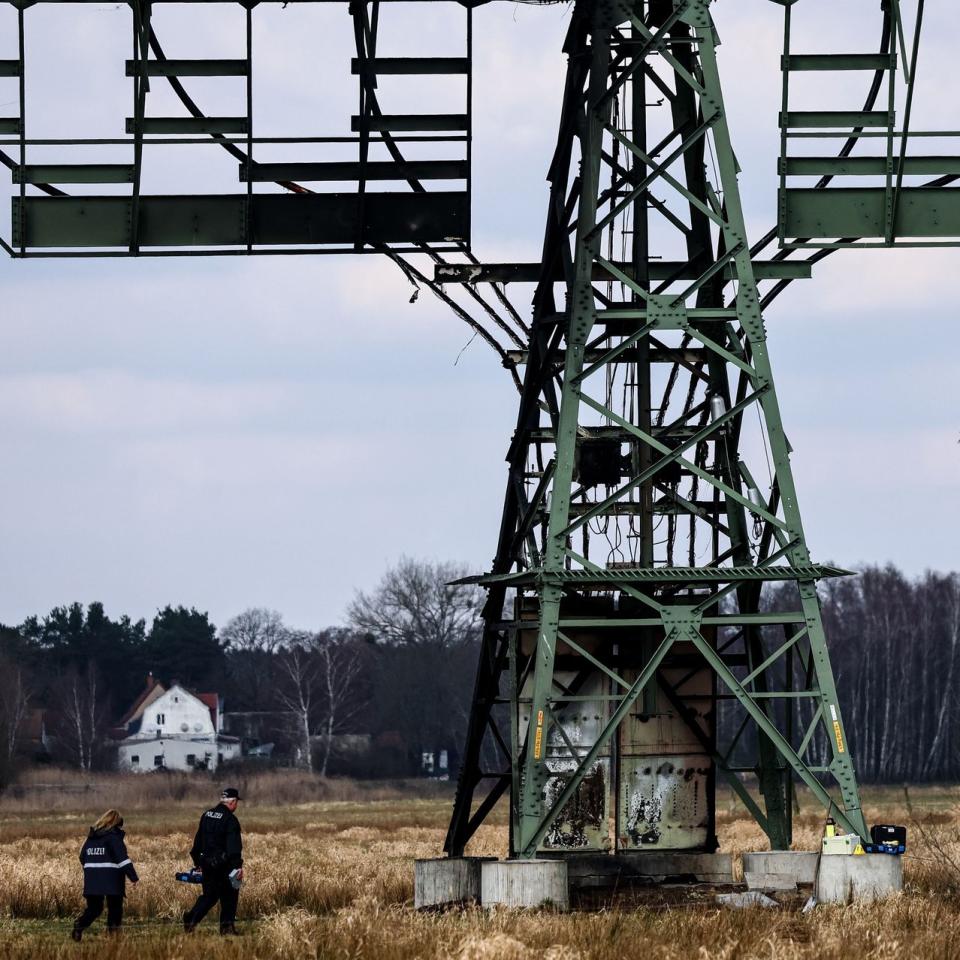
‘These people aren’t from here’
Last week, an underground left-wing group calling itself Vulkangruppe, or the Volcano Group, claimed responsibility for setting fire to an electricity pylon. The act cut power to the factory for over a week and caused a production stoppage that Tesla said cost it close to a billion euros. Germany’s Federal Prosecutor is now investigating the act as potential terrorism.
In an unexpected confluence of trends, local leaders of Germany’s far-right AfD have joined the far-left in opposing the factory’s expansion. In addition to concerns about the landscape, the AfD points to the thousands of foreigners from Poland and elsewhere recruited to work here.
Recent public opinion polls project the AfD could become the strongest party in the state of Brandenburg, where Grünheide is located, at regional elections in September. The party could garner up to 30% of the vote, according to polls.
German far-right politicians have seen the mounting hostility against Tesla and Musk as an opportunity to mobilize supporters against Germany’s green transition.
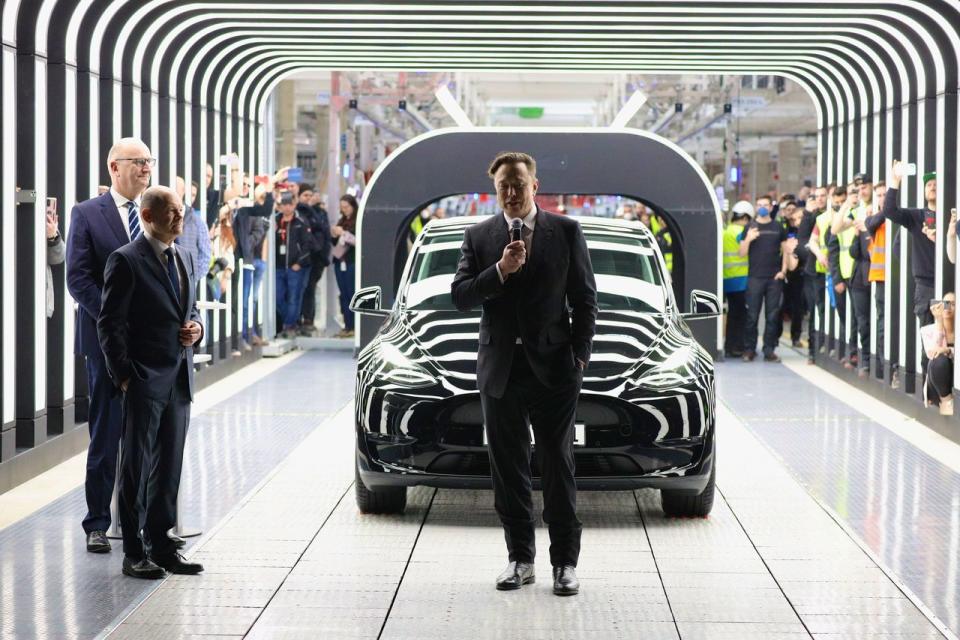
The Tesla plant has done little to benefit local residents, said Kathi Muxel, an AfD official on the Grünheide city council and in the state legislature.
“In the summer, you can see the Tesla workers from Poland sleeping in their cars at the lake,” Muxel said at a roadside cafe and convenience store.
On Sunday, the strong feelings about Tesla were on display in Grünheide as protesters carrying banners calling for “climate justice” marched through the town.
On the sidelines, a group of young people from the town demonstrated in favor of Tesla and the expansion of the plant. Local citizens in favor of the plant complained that most of the environmentalists marching through town were outsiders who were using the issue to further their own interests.
As the protesters passed, Horst Boge, 87, leaned over his wrought iron gate, looking perplexed.
“This is horrible,” he said. “These people aren’t from here.”
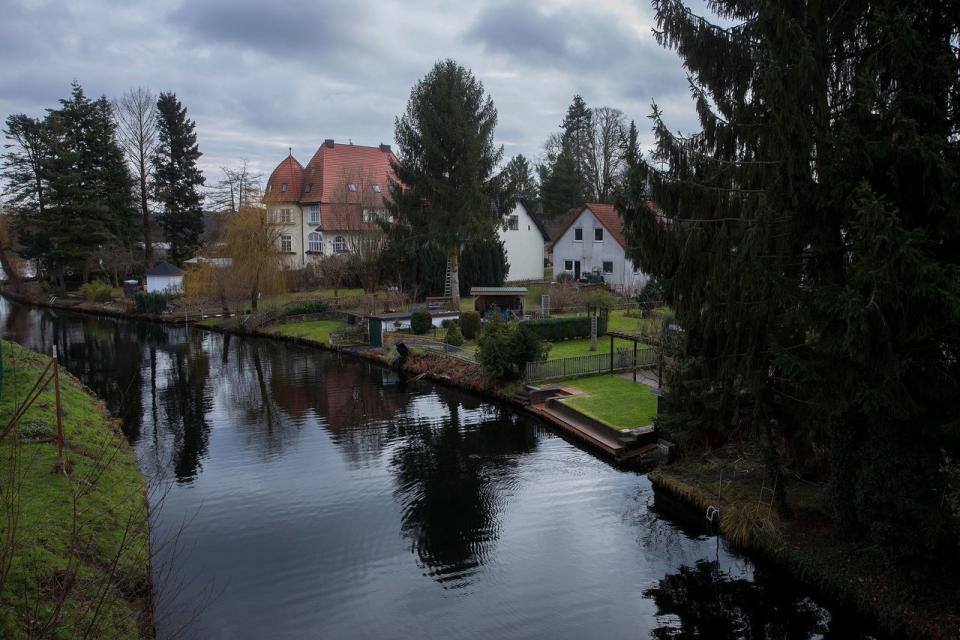
Write to William Boston at william.boston@wsj.com
